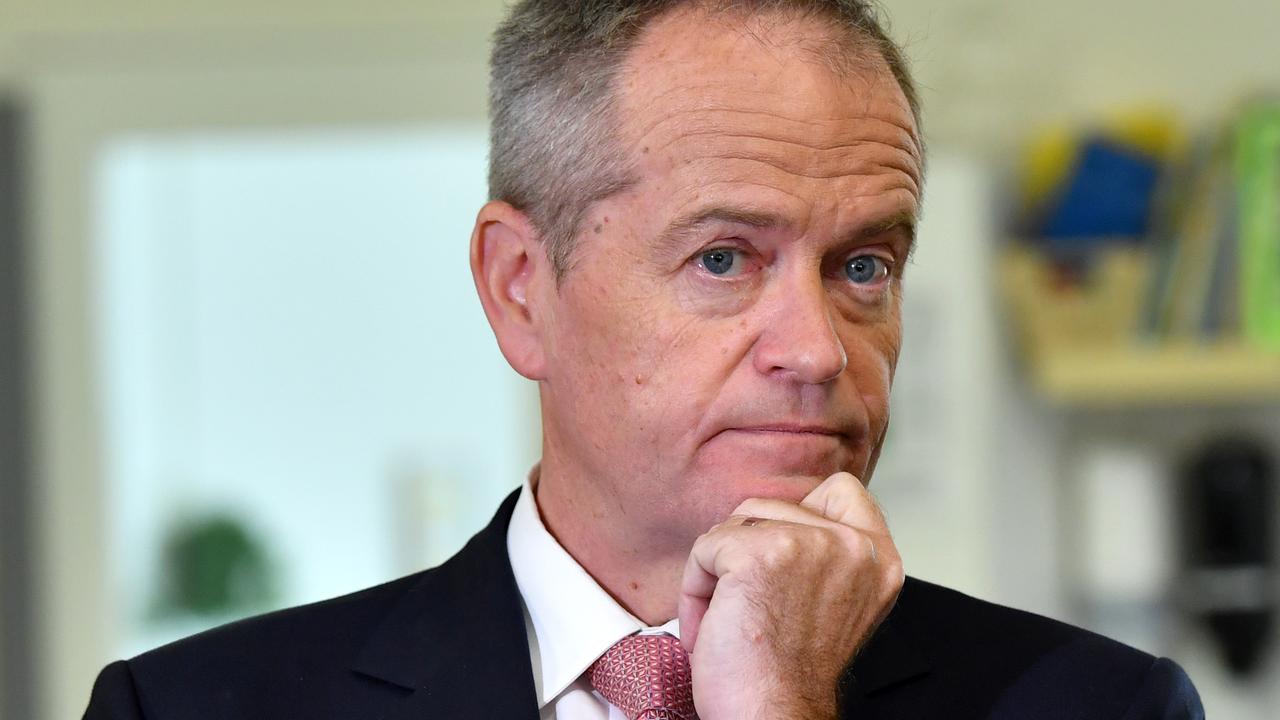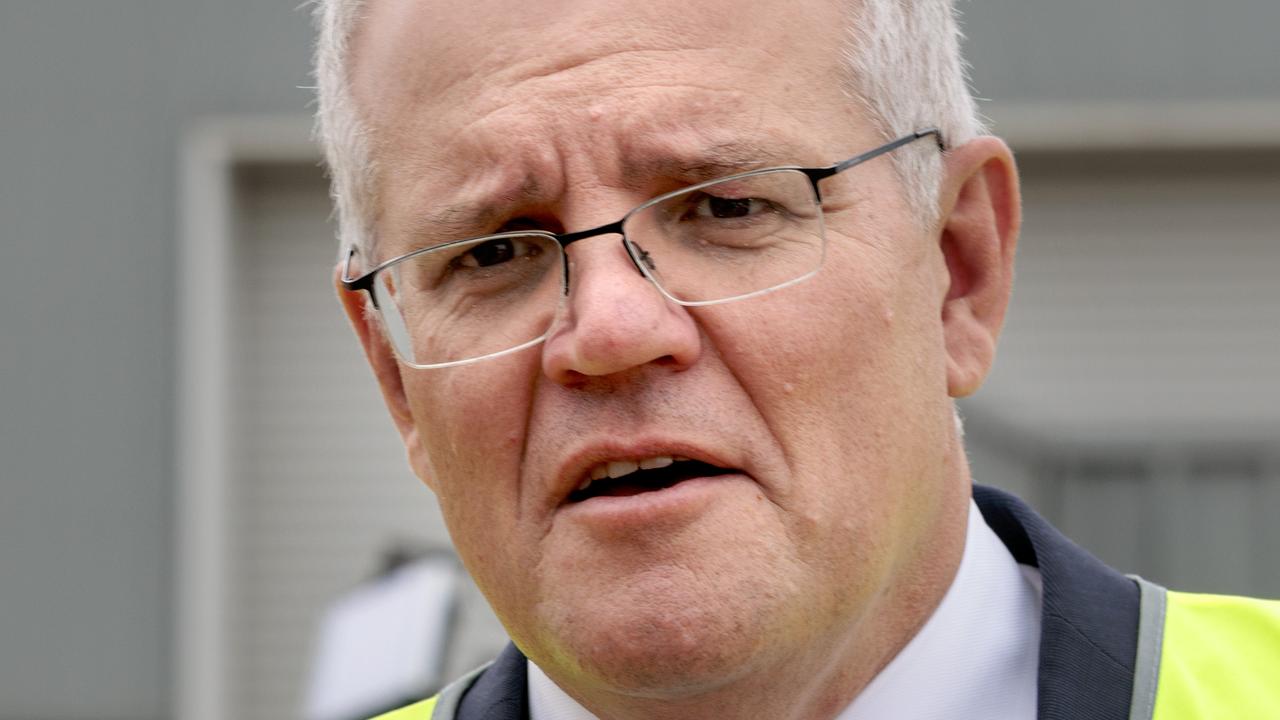Expert claims ‘billions of dollars a year’ given to people who pay no tax
There’s a sneaky way you can score a taxpayer-funded cash handout — but most Aussies have no idea how the loophole works.
Some of the country’s wealthiest people are paying “negative tax” from a confusing loophole that could help decide the Federal Election.
That’s according to Richard Denniss, the chief economist and former executive director of influential progressive think tank The Australia Institute, who slammed Australia’s “weird” dividend imputation system.
Dr Denniss told news.com.au most of us tuned out when the topic was raised because it was considered to be “boring” and “confusing” — but as a result, taxpayers were lining the pockets of the rich to the tune of billions each year.
The “loophole” has made headlines recently because Labor has vowed to shake up the system if it wins the next election — and it was a major issue raised at the first televised leadership debate.
But while the ALP says its proposed changes will make the system fairer, others — including retirees — say they’ll be getting a raw deal.
THE DEBATE
Scott Morrison and Bill Shorten went head-to-head in the first debate of the election campaign — and a question from audience member Ron Ryan about the impact of changes to franking credits caused a fiery clash between the leaders.
Mr Shorten insisted the policy wouldn’t affect pensioners and that it would merely close a tax loophole before plugging Labor’s pensioner dental care plan.
But Mr Morrison hit back, claiming those with self-managed super funds would be “hit by the retirees tax”.
Franking Credits: The Leaders' Debate live on @7TWOAU/@Channel7 & https://t.co/vcyXz8OdrV. https://t.co/dLga2eH09r Repeated on @Channel7 at 9:45pm. #LeadersDebate #ausvotes #7NEWS pic.twitter.com/37F8xHoxfB
— 7NEWS Perth (@7NewsPerth) 29 April 2019
Mr Shorten eventually conceded that a “very small number of people” with self-managed super funds created after March 2018 will be affected.
But he argued that half a million Australians now had to pay an average of $11,000 per year “just to give a tax refund to someone who didn’t pay tax”, and said the current policy was “not sustainable”.
“(The cost) is now $6 billion, it’s not illegal, it’s a gift, the nation can’t keep giving a gift …” he said.
Still confused? Here’s what you need to know.
AUSTRALIA’S ‘WEIRD’ SYSTEM
If you’re a shareholder, you get paid a dividend when the company makes a profit — and normally you would have to pay tax on that, just like you would with your regular wages.
But in 1987, then-treasurer Paul Keating introduced “dividend imputation credits” — also known as “franking credits” — which was designed to prevent double taxation.
Basically, it recognised that the government already taxed companies’ profits, so it wasn’t fair to then tax an individual a second time.
So shareholders were given a sort of “I owe you” — they were able to deduct the amount the company had already paid in tax off their own taxable income.
But then in 2001, Peter Costello took it one step further and changed the rules to allow that tax deduction to be swapped for a cash refund.
It meant that even shareholders who didn’t pay tax — like retirees — could still be given a cash refund from the ATO.
While in theory it sounds like the policy is benefiting those at the lower end of the socio-economic spectrum, critics like Dr Denniss argue that in reality, it often benefits the very wealthy.
As The Australia Institute executive director Ben Oquist revealed in the Sydney Morning Herald in 2018, as a result of the current system, “one lucky non-taxpayer actually received $2.5 million in ‘tax credits’ in a single year”.

THE PROBLEM
Dr Denniss said the system was a problem because having a low taxable income does not necessarily mean you aren’t wealthy.
“There are lots of people who don’t work who have a lot of wealth, and we’re also talking about taxable income, not gross income — so if your accountant is good at getting your gross income down from say $60,000 to $20,000, then you also get to access the free tax credits as well as retirees,” he explained.
“A lot of people don’t understand the system, but people who spend tens of thousands of dollars a year on accountants certainly understand it.
“That’s why billions of dollars a year are being given to people who pay no tax, as tax refunds. If people understood the system then they would want it changed.”
Dr Denniss said when the policy was first introduced, it cost around $500 million per year, but that figure had now blown out to up to $6 billion, representing a “major drain on the Commonwealth budget” that was “growing rapidly” — and taking hard-earned taxpayer dollars away from worthy causes like schools and hospitals.
LABOR’S PLAN
According to the ALP, a Shorten government will reform dividend imputation “so wealthy people who pay no income tax no longer get a cash refund simply for owning shares”.
The ALP has stated that pensioners will be “protected” from these changes, noting that just 4 per cent of Australians benefit from the concession at the moment.
“Recipients of cash refunds are typically wealthier retirees who aren’t paying income tax,” the ALP website states. “These are people who typically own their own home and have other tax-free superannuation assets. For people of retirement age, more than 80 per cent of the benefit is going to the wealthiest 20 per cent of retirees.”

THE CRITICS
However, opponents of the changes argue plenty of ordinary Aussies stand to lose out.
The Association of Independent Retirees acting president Wayne Strandquist told news.com.au most affected members did not have millions sitting in the bank, and that on average, those impacted by the proposed changes would lose up to $10,000 a year — or around 20 per cent of their annual revenue.
He said most were self-funded retirees who only just missed out on the pension, and who were now being penalised for following sensible investment advice.
“I’d say on average most of our affected members stand to lose $6000-8000 in franking credit refunds, and when you’re dealing with retirees on $30,000-$40,000 per annum, $8000 is 20 per cent of their income — what would politicians do if they lost 20 per cent of their income?” he said.
Mr Strandquist said members were also angry that the policy would not be grandfathered — unlike other major proposed changes such as negative gearing.
“Since 2000 franking credit refunds have been available and people have factored it into their plans,” he said.
“Most affected people are over 70 so they can’t put any more money into super, therefore they’re stuck because if they liquidate their share investments at their age, they’re not confident they will be able to find an alternative.”
He said members were also concerned that the policy had been amended soon after its initial announcement.
“The association believes the franking credit cash refund policy must have been put together with very superficial research because very soon after its announcement, it was significantly amended to exempt hundreds of thousands of pensioners,” Mr Strandquist said.
Last year, the Coalition announced that a House of Representatives standing committee on economics would hold an inquiry into Labor’s proposal, and public hearings have been held across the country.
Continue the conversation @carey_alexis | alexis.carey@news.com.au




